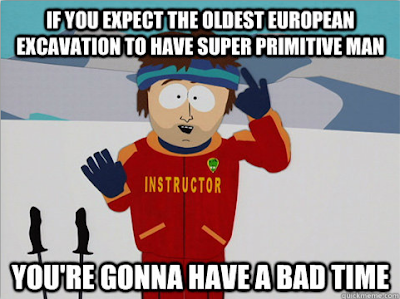Biases in Evolution at Ancient Ruin
A frequent presupposition from evolution is that ancient man is extremely primitive. After all, he was just a brute that had recently evolved, and had not yet learned to do those things typical of civilized humans. But excavations keep contradicting that bias. An excavation in Bulgaria predates ancient Greece by about 1,500 years, they say. Yet there are signs of civilization, even though they had not invented the wheel. Oh, really? That is an assumption, a kind of argumentum ad ignorantiam — because no wheels were found, they must not have existed. The evidence for civilization would imply otherwise, wouldn't it?
Researchers are calling an ancient ruin near Provadia in Bulgaria Europe's oldest town. Its carbon age between 4700 and 4200 B.C. predates the accepted calendar age of ancient Greece by about 1,500 years. Investigators have uncovered enough clues from the intriguing site to attempt reconstructing the lives of its ancient inhabitants, but it appears that they left out a key conclusion.
The walls were very tall and made of stone blocks. It contained two-story houses, gates, and bastion structures. The town was a religious center, with pits used for rituals, and its main industry was salt production. The city's ancient inhabitants processed and sold salt from a nearby deposit that still yields salt today. And that salt made them rich.See the Argument from Ignorance as well as the remarkable signs of culture in "'Oldest' European Town News Misses the Obvious".
